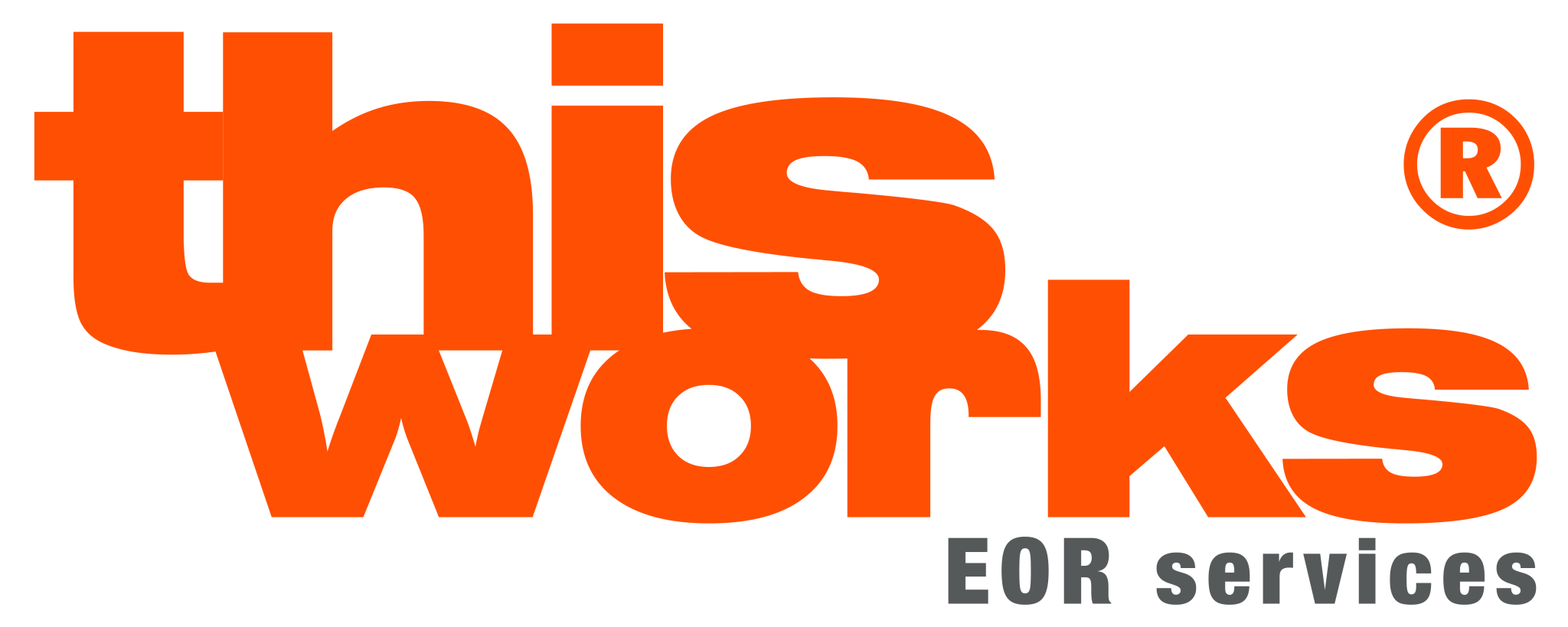
Navigating Dutch Working Culture – A Comprehensive Guide
People all over the world know that the Netherlands has a great quality of life, advanced ideas, and efficient ways of working. If you want to do well in the Dutch business world, you need to understand how people work there. Many small things make up the Dutch work culture, such as an informal workplace, direct contact, and being on time. This in-depth guide will go over all of these topics and give you useful tips on how to adapt and do well in the Dutch business world.
Unique Characteristics of Dutch Work Culture
The Dutch work culture stands out with its distinctive elements that differentiate it from other countries. Let’s delve deeper into these key aspects:
Accepting casualness
Dutch workplaces are known for being casual and welcoming to everyone. Hierarchy is not as clear-cut as it is in many other countries, and people in the same company often call each other by their first names, no matter what role they hold. This casual setting makes everyone feel like they belong, which encourages team members to talk to each other and work together.
Setting priorities and balancing work and life
One important part of Dutch work culture is that people are expected to keep a good work-life balance. Personal time is very important to Dutch workers, and they work hard to make clear boundaries between work and fun. Because of this commitment to balance, many companies offer flexible hours and part-time work, so workers can take care of their personal and professional obligations outside of work.
Putting a value on direct communication
Being direct is a big part of how Dutch people talk to each other. People are told to be open and honest about their thoughts, even if it means giving feedback or criticism. This straightforward method not only encourages openness but also speeds up the process of making decisions. By encouraging open and honest conversation, Dutch workplaces help team members understand each other and work together well.
Focusing on being on time
Being on time is an important part of Dutch work culture and is seen as a basic sign of respect for other people’s time and tasks. Whether they are on time for meetings or projects, Dutch workers put being on time at the top of their list of priorities. Following through with plans and due dates shows a strong sense of respect and responsibility, and helps organizations run smoothly.
The Dutch work culture is a unique mix of being casual, having a good work-life balance, talking to people directly, and being on time. Professionals can easily handle the Dutch business world by embracing these unique traits. They can also help create a thriving workplace based on mutual respect and teamwork.
Tips for Adapting to Dutch Work Culture: Navigating with Ease
Adapting to the Dutch business environment requires a nuanced approach. Here are some insightful tips to help you thrive:
Embrace informality and make connections
The casual atmosphere in Dutch workplaces makes it easier for people to get along and work together. Don’t be afraid to call your co-workers by their first names and start casual talks. Taking part in office events builds a sense of community and strengthens relationships within your team, which makes it easier to work together.
Work-life balance should be respected and put first
Understand how important it is to keep a good balance between your work and home life. Show that you care about having a good work-life mix by not sending work-related emails after hours unless you have to. Put your health and fun activities first to stay inspired and recharge, which will help you be more productive in the long run.
Use direct communication to work together more effectively
In Dutch conversation styles, being direct is very important. Get ready to talk to your co-workers and bosses honestly and clearly. Do not be afraid to say what you think or ask questions. But it’s important to do so in a way that is respectful and helpful, creating an atmosphere where people value each other and work together.
Develop punctuality as a sign of professionalism
Being on time is an important part of Dutch work culture and shows that you are professional and value other people’s time. Regularly show up for meetings and meet project due dates to develop the habit of being on time. If you expect any delays, let your team know ahead of time to keep the lines of communication open and build trust.
You can easily fit in with the Dutch work culture and do well in the fast-paced business world if you embrace informality, value work-life balance, communicate directly, and show up on time. These tips will not only help you adapt, but they will also help you make real links and do well at work.
Balancing Work and Personal Life in the Netherlands
Making sure you have a good mix between work and personal life is an important part of Dutch working culture. In the Netherlands, family and free time are more important than work hours, which is different from some other countries.
There are a lot of flexible work choices in the Netherlands, such as part-time schedules and the chance to work from home. This gives workers the freedom to change their work hours to fit in personal obligations or hobbies outside of work.
Employers also know how important it is to help their workers find a good work-life balance. A lot of research has shown that workers who feel like they can balance their work and personal obligations are more loyal to their companies, productive, and engaged.
If you want to find a good balance between work and home life in the Netherlands, try these ideas:
Protect yourself
Make it clear when work time ends and playtime starts. If it’s not an emergency, don’t check work emails or answer the phone outside of work hours.
Set goals and take care of yourself
Do things that are good for your physical, mental, and social health as part of your self-care routine. Schedule time for things that will recharge your batteries, like working out, spending time outside, or doing hobbies.
Tell people what you expect
Tell your boss and co-workers the truth about how you want to balance your work and personal life. Talk to your boss ahead of time if you need to change your work plan or take time off for personal reasons. Make sure everyone knows what is expected of you.
Learn to manage your time well
Learning how to handle your time well will help you get more done during work hours. To get the most out of your time at the office, set reasonable goals, prioritize chores, and cut down on distractions.
By putting work-life balance first and being proactive about managing your time, you can have a fulfilling job and a fulfilling personal life in the Netherlands.

Effective Communication in Dutch Workplaces
The Dutch way of working is based on direct contact. When people talk to each other, whether it’s about project reports, giving feedback, or solving problems, they value honesty, clarity, and openness.
Here are some tips for effective communication in Dutch workplaces:
Make it clear and short
It’s very important to be clear and to the point when talking to co-workers or clients. To avoid mistakes, it’s important to be clear and not vague. To ensure clear conversation and understanding, get to the point and say what you want to say quickly.
Be honest about your thoughts
Being honest and real is very important in Dutch society when talking to other people. Don’t be afraid to say what you think, even if it’s different from what your co-workers think. The Dutch like hearing different points of view and respect people who aren’t afraid to say what they really think about important issues.
Pay attention
Listening is an important part of communicating clearly because it works both ways. Listen carefully, ask questions to help you understand, and thank people for their feedback. Respecting your co-workers’ points of view leads to more meaningful conversations and stronger working relationships.
Feedback you can give and get being constructively
Feedback is very important for both personal and professional growth. Approach the process with an open mind and a positive attitude, whether you are giving or getting feedback. Focus on specific actions or results and give ideas for how to make things better to help growth and development.
Know how to read nonverbal cues
People’s body language, facial movements, and tone of voice can tell you a lot about how they’re feeling or what they’re thinking. Paying attention to these small cues helps you understand what’s being said and makes it easier to work together and communicate.
You can work together well with your Dutch co-workers and have good relationships with them if you improve your communication skills and follow the rules of being honest, being clear, and actively listening.
Dutch Business Etiquette and Norms
For professional interactions and building strong ties in the Netherlands, it’s important to know and follow Dutch business etiquette. Dutch culture may seem less formal than that of some other countries, but there are still rules and habits that people should follow when they are doing business.
Here are some key aspects of Dutch business etiquette to keep in mind:
Being professional
Even though Dutch workplaces are more casual, politeness is still very important. When you go to a business meeting, dress modestly and properly, and always be polite and respectful.
Being on time
As was already said, being on time is an important part of Dutch society. Show that you can be relied on and value other people’s time by being on time for meetings, schedules, and networking events.
Being direct
The Dutch like to talk to each other directly and respect co-workers who say what they really think. Don’t hide your feelings or send vague messages; be honest and direct in your conversations.
Linking up
In the Netherlands, networking is a big part of doing business. Go to conferences, events, and networking events in your field to build your business network and meet other people in the same field.
Meetings for business
When you go to a business meeting in the Netherlands, make sure you are ready to add to the conversation. Keep your presentations short, and don’t take over the chat. Actively listen to what others have to say and work with others to solve problems.
Keep up with it
Following up with a thank-you email or message after a meeting or other business contact is seen as polite. Thank them for the chance to meet and go over any important points that were brought up during the meeting again. This shows that you are a professional and shows that you want to keep a good relationship with your co-workers.
Making friends
In Dutch business society, it’s important to make friends outside of work. People you work with, or clients may ask you to join them for lunch or drinks after work. Saying yes to these invites is a great way to build business relationships and get to know your co-workers better outside of work.
Giving gifts
Even though it’s not popular in Dutch business culture, small gifts can be given to show appreciation on holidays or when someone reaches a big goal. Don’t give gifts that are too big or too expensive, because they might be seen as unsuitable or too much.
Bribery and corruption is prohibited in the Netherlands, and there are specific guidelines advising against the giving of large gifts in a business context.
Honour differences in culture
People from all over the world live in the Netherlands, making it a very diverse country. When you are working with people from different backgrounds, show respect for their differences and be aware of cultural sensitivity.
Language
There are a lot of Dutch people who speak English very well, especially at work. However, learning a few simple Dutch words can be very helpful. It shows that you care about the language and customs of the area and can help you get along better with your Dutch co-workers.
If you follow these rules of etiquette and show respect for Dutch traditions and customs, you can make friends and feel confident in your business interactions in the Netherlands.
Conclusion
To get along in the Dutch work culture, you need to know about its unique traits and beliefs. The Dutch business world is shaped by many small details, such as an informal work setting, the value of direct communication, being on time, and finding a good work-life balance.
You can adapt to and do well in the Dutch workplace by being casual, putting work-life balance first, communicating directly, and following Dutch business etiquette. Remember to be aware of and accept cultural differences, listen to your co-workers, and build strong professional relationships based on trust and respect.
Whether you’re new to the Netherlands or have worked here for a long time, you need to understand and accept the Dutch way of working if you want to be successful and happy in your job. If you follow the tips in this guide, you’ll be able to do business in the Netherlands with trust and ease.
FAQs
In the workplace, how do the Dutch handle hierarchy?
The Dutch have a fairly flat structure when it comes to leadership at work. There is respect for power, but titles aren’t given as much weight, and people often work together to make decisions. This creates an environment where all employees, no matter what role they hold, feel free to share their thoughts and ideas.
What do the Dutch do to balance their work and personal lives?
In the Netherlands, work-life balance is very important. There are part-time jobs available and flexible work hours in the Netherlands. People also value their time, so workers can balance their work responsibilities with fun activities and time with family and friends.
Does the Dutch way of working value open communication?
Yes, direct contact is very important in the Dutch way of working. People are told to be open and honest about their thoughts and feelings, even if that means giving helpful feedback or questioning ideas. Putting a focus on being direct encourages openness, productivity, and a trusting and responsible work environment.
What’s the point of talks in the Dutch way of working?
Meetings are an important part of the Dutch work culture because they are where people work together, make decisions, and share information. But they are usually well-organized and focused, with a focus on getting things done quickly. Dutch professionals put a lot of value on being on time and ready for meetings. This makes sure that talks are useful, and decisions are made quickly.
How important is being on time at work in the Netherlands?
Being on time is very important at work in the Netherlands; it shows that you value other people’s time and commitments. On-time attendance at meetings, meeting project deadlines, and keeping appointments are expected in both business and social settings. Not being on time could be seen as rude or unprofessional.
Article Author – Gino Peters
Gino Peters is the Commercial Director at ThisWorks, with a rich history of nearly a decade in international payroll. Throughout his tenure, he has consistently kept abreast of evolving labor legislation, ensuring that ThisWorks remains at the forefront of industry knowledge. Beyond his vast expertise, Gino is deeply committed to advising and guiding clients and partners with precise insights. His leadership guarantees that all content and operations at ThisWorks meet the highest standards of clarity, accuracy, and compliance.
Follow him on Linkedin
Book a free consultation with Gino Peters






